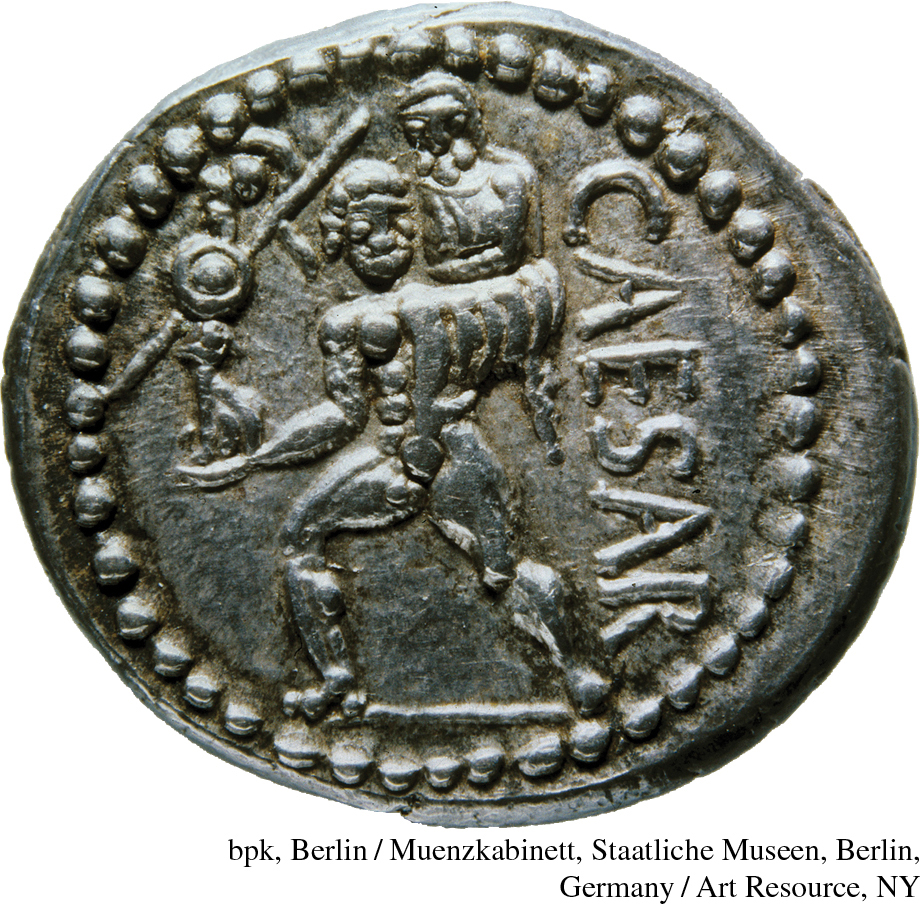Sulla and Civil War, 91–78 B.C.E.
Sulla and Civil War, 91–78 B.C.E.
One such commander, Lucius Cornelius Sulla (c. 138–78 B.C.E.), took advantage of uprisings by non-Romans in Italy and Asia Minor in the early first century B.C.E. to use his client army to seize Rome’s highest offices and force the Senate to support him. His career revealed the dirty secret of politics in the late republic: traditional values no longer restrained commanders who prized their own advancement over peace and the good of the community.
The uprisings in Italy occurred because many of Rome’s Italian allies lacked Roman citizenship and therefore had no vote in decisions that affected them. Their upper classes also wanted to share the prosperity that war brought to Rome’s citizen elite. The Roman people rejected the allies’ demand for citizenship, afraid that sharing such status would lessen their own privileges.
The Italians’ discontent erupted in 91–87 B.C.E. in the Social War. They demonstrated their commitment by the number of their casualties—300,000 dead. Although Rome’s army prevailed, the rebels won the political war: the Romans granted citizenship and the vote to all freeborn people in Italy south of the Po River. The Social War’s bloodshed therefore reestablished Rome’s tradition of strengthening the state by granting citizenship to outsiders.

Sulla’s generalship in the war won him election as consul for 88 B.C.E. When Mithridates VI (120–63 B.C.E.), king of Pontus on the Black Sea’s southern coast, rebelled against Roman control and high taxation, Sulla seized his chance. Victory against Mithridates would mean capturing unimaginable riches from Asia Minor’s cities and allow him to restore his patrician but impoverished family’s status. When the Senate gave Sulla the command, Marius had it transferred to himself by plebiscite. Outraged, Sulla marched his client army against Rome. All his officers except one deserted him in horror at this shameful attack, but his common soldiers followed him. After capturing Rome, Sulla killed or exiled his opponents. He let his men rampage through the city and then led them off to Asia Minor, ignoring a summons to stand trial and sacking Athens on the way. In Sulla’s absence, Marius embarked on his own reign of terror in Rome to try to regain his former power. In 83 B.C.E., Sulla returned victorious, having allowed his soldiers to plunder Asia Minor. Civil war erupted for two years until Sulla crushed his enemies at home.
Sulla then exterminated his opponents. He used proscription—posting a list of people accused of being traitors so that anyone could hunt them down and execute them. Because proscribed men’s property was confiscated, the victors fraudulently added to the list anyone whose wealth they coveted. The terrorized Senate appointed Sulla dictator—an emergency office supposed to be held only temporarily—and gave him permanent immunity from prosecution. Sulla reorganized the government to favor the optimates—his social class—by making senators the only ones allowed to judge cases against their colleagues and forbidding tribunes from sponsoring legislation or holding any other office after their term.
Sulla’s career revealed the strengths and weaknesses of Roman values. First, the purpose of war had changed from defending the community to accumulating plunder for common soldiers as well as commanders. Second, the patron-client system led proletarian soldiers to feel stronger ties of loyalty to their generals than to the republic.
Finally, the traditional competition for status worked both for and against political stability. When that value motivated men to seek office to promote the community’s welfare, it promoted social unity and prosperity. But pushed to its extreme, the contest for individual prestige and wealth destroyed the republic.